If you’re new to the world of mental health services, you may have many questions. The information on this page can be useful if you are starting your recovery journey. Even if you are not ready to start treatment, it can be helpful to have these questions answered ahead of time so you or your loved one can more easily access treatment when it matters most.
*If you’re on a smartphone, switch to landscape for a better view of this page.
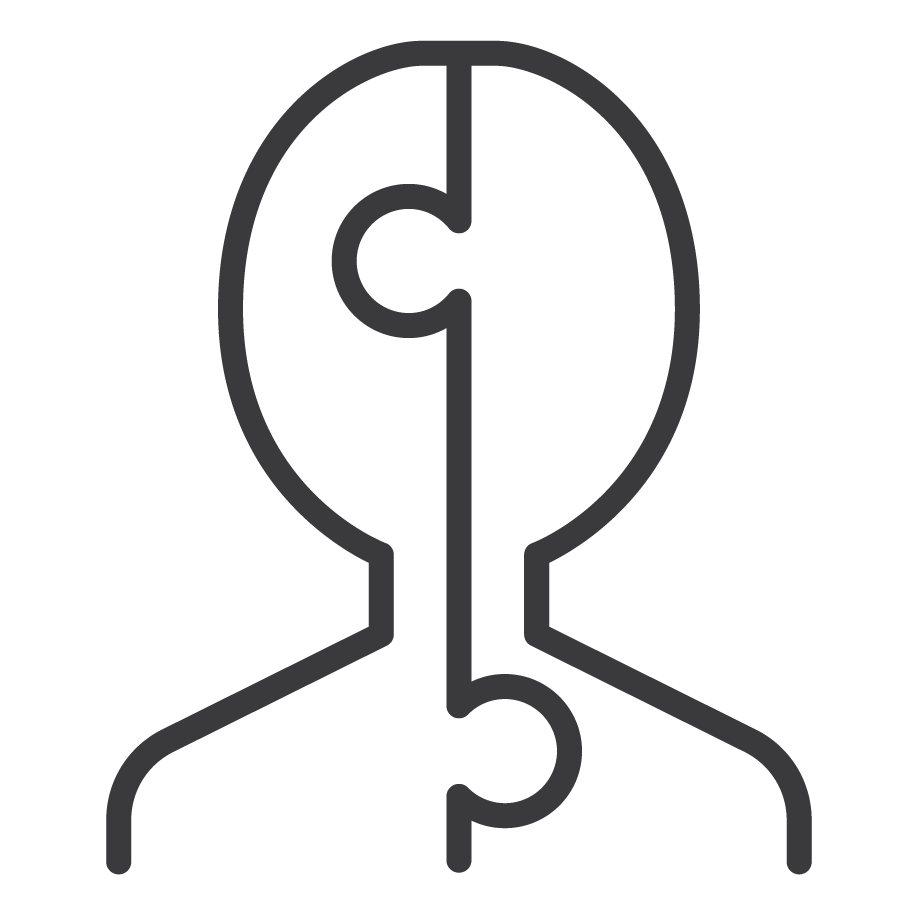
Mental illness is common. Research shows that 1 in 5 people will have a diagnosable mental health condition within their lifetime. Half of those people will start showing symptoms by age 14, and three-quarters begin by age 24.
Knowing the risk factors and signs of mental illness and substance use can help with early diagnosis, which has benefits for long-term recovery.
Risk and Protective Factors
The reason a person develops a mental health or substance use challenge is complex. There is no single cause. Things like genes, biology, environment, Adverse Childhood Experiences (ACEs) and lifestyle can play a role. It is unique to the person, their body and life circumstances.
Still, there are some risk factors to keep in mind:
Signs
Going through times of great stress, sadness and grief are normal parts of life, and usually temporary. However, when symptoms linger for a long period of time or interfere with day-to-day functioning, it is time to seek help. Signs may include:
Consider taking a Mental Health First Aid training to increase your knowledge of mental health and gain skills to help someone who may be developing a mental illness or substance use issue. FREE trainings are available in Shasta County. Contact us if you are interested.
*Adapted from Warning Signs and Risk Factors for Emotional Distress and Recognizing Warning Signs and How to Cope.
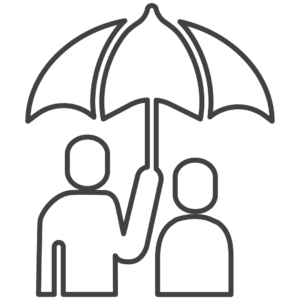
Going through times of great stress, sadness and grief are normal parts of life, and usually temporary. However, when symptoms linger for a long period of time or interfere with day-to-day functioning, it is time to seek help.
A person does not have to be experiencing a crisis to start working on their mental wellness. In fact, our overall health can be improved when a mental illness is diagnosed early on.
Learn about about the continuum of mental health in this factsheet from Take Action for Mental Health.

IMPORTANT: If you or someone you love is in crisis and in immediate danger of harming themselves or others, call 9-1-1 or go to the emergency room.
*If you are already in treatment, do not stop without talking to your doctor and/or therapist.
It is recommended to check in with your health insurance company to see what types of mental health services are covered and where to access treatment. This can be done whether or not you are actively needing or seeking treatment. Having this information ahead of time can help you or your loved one more easily access treatment when it matters the most.
If you are still unsure where to start, and you live in Shasta County, contact:
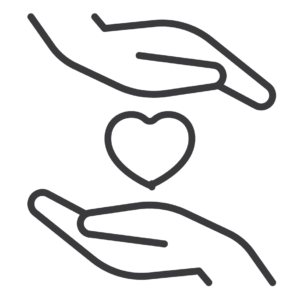
There are a variety of types of professionals, with different levels of experience and licensure, that can provide care for mental health and/or substance use recovery. The following is a list of providers you might work with on your journey.
The types or professionals listed may provide treatment in-person or by telehealth.
Assessment and Diagnosis
Getting a diagnosis is the first step toward recovery. Licensed professionals that can provide assessment and diagnosis are Psychiatrists, Primary Care Doctors, Psychologists, Licensed Marriage and Family Therapists (LMFT) and Licensed Clinical Social Workers (LCSW). These types of professionals have a high level of training and experience in treating mental health challenges.
Medication Prescription and Monitoring
Medication can be an important tool in recovery. Providers that can prescribe and monitor medication are Primary Care Doctors and Psychiatrists. You might also work with a Nurse Practitioner or Physician Assistant who is under the supervision of a doctor or psychiatrist.
Medication is most effective when it is used in conjunction with counseling.
Individual or Group Counseling
Therapists help people learn strategies for coping with thoughts, feelings and behaviors to manage their symptoms. Professionals who can provide individual or group counseling are Psychologists, Licensed Marriage and Family Therapists (LMFT) and Licensed Clinical Social Workers (LCSW). Other counseling providers may work under a licensed professional, such as an Associate Clinical Social Worker (ACSW) or Licensed Marriage and Family Therapist Intern (LMFTI).
Case Management
In some cases, a person may need additional resources to support them through recovery. Case managers can help with discharge planning if the person has been hospitalized and referrals to other social service programs that enhance the person’s overall wellbeing (housing, job search, medical needs, etc.). Professionals that typically do case management have a Masters in Social Work (MSW) or are Associate Clinical Social Workers (ACSW) or Licensed Marriage and Family Therapist Interns (LMFTI).
Peer Support
Peers are people who have personal experience or are a family member of someone living with mental health and/or substance use challenges. They walk alongside people who are early in recovery and help them set goals that are unique to their strengths. Peer Support Specialists undergo training that helps guide their work. California is currently working on a state-wide certification program for peers.
*Adapted from Types of Mental Health Professionals and Help for Mental Illness.
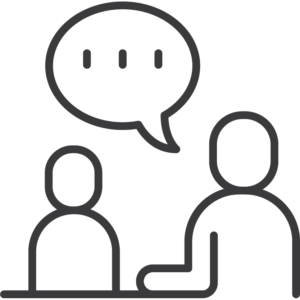
It is important to remember that your care providers work for you. When setting up your first appointment, or switching providers, it is OK to interview them and find out more about their treatment approach.
Some questions you might want to ask your primary care doctor, psychiatrist or therapist are:
First and Foremost
Background
Insurance and Payments
Appointment Scheduling
*Adapted from Questions to Ask a Provider and Psychotherapies.
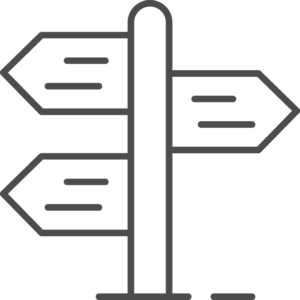
For some, having a diagnosis can be a big relief. They finally have a starting point for working through what they have been thinking and feeling.
For others, it can be hard news to take. They may wonder why this happened to them and be worried about the future. They may be dealing with self-stigma and are not sure what to think.
The good news is that treatments are effective and people do recover. Many people who manage mental health or substance use challenges go on to lead full lives and make important contributions to the community.
A few things can help:
*Adapted from After a Diagnosis.
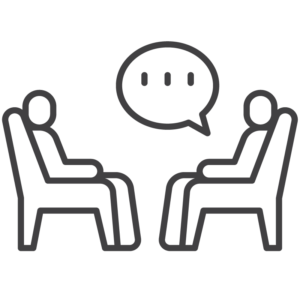
When the word therapy comes up, some imagine that it is just talking about feelings and childhood issues. While these topics might come up as something you may want to work through, there is much more to therapy.
Therapy is a time to:
There are many different types of therapy. Different treatment approaches work better than others depending on the diagnosis. Some common types of therapy are:
To get the most out of therapy:
For help finding a therapist, use the resource information under ‘Who do I contact to start treatment?‘ on this page. Additional help can be found on the National Institute of Mental Health’s ‘Psychotherapies‘ page under ‘Finding a Therapist.’
*Adapted from Psychotherapy, Therapy and Psychotherapies.
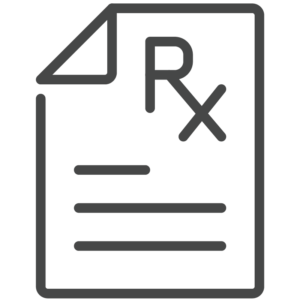
Medications can play an important role in recovery. They can help someone manage their symptoms so they can participate in treatment and life.
Some things to know about medication:
For more information about psychiatric medication, visit NAMI’s Mental Health Medications page.
*Adapted from NAMI Mental Health Medications, NIMH Medications and Medication.
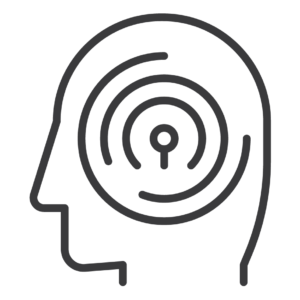
One Brave Face, Cherish Padro, said, “My recovery doesn’t look like a straight line. It’s up and down. It’s a fluid process.”
There is no set timeline for recovery. When starting out, it can take time to adjust to things like medication and find a therapist you click with. It could be a few weeks, months, or longer to start feeling better. Some people will have to learn how to manage their mental health challenges for life.
The important thing to remember is that people do recover and there is hope. Staying active in your treatment and connected to others can make a difference.
Remember, you are not alone. Read the stories of Brave Faces Advocates or seek out a Peer Support Specialist. You might find someone who has gone through the same thing, that can keep you company as you heal.

© Copyright 2021 – Stand Against Stigma – All rights reserved. | Websites By: prime42